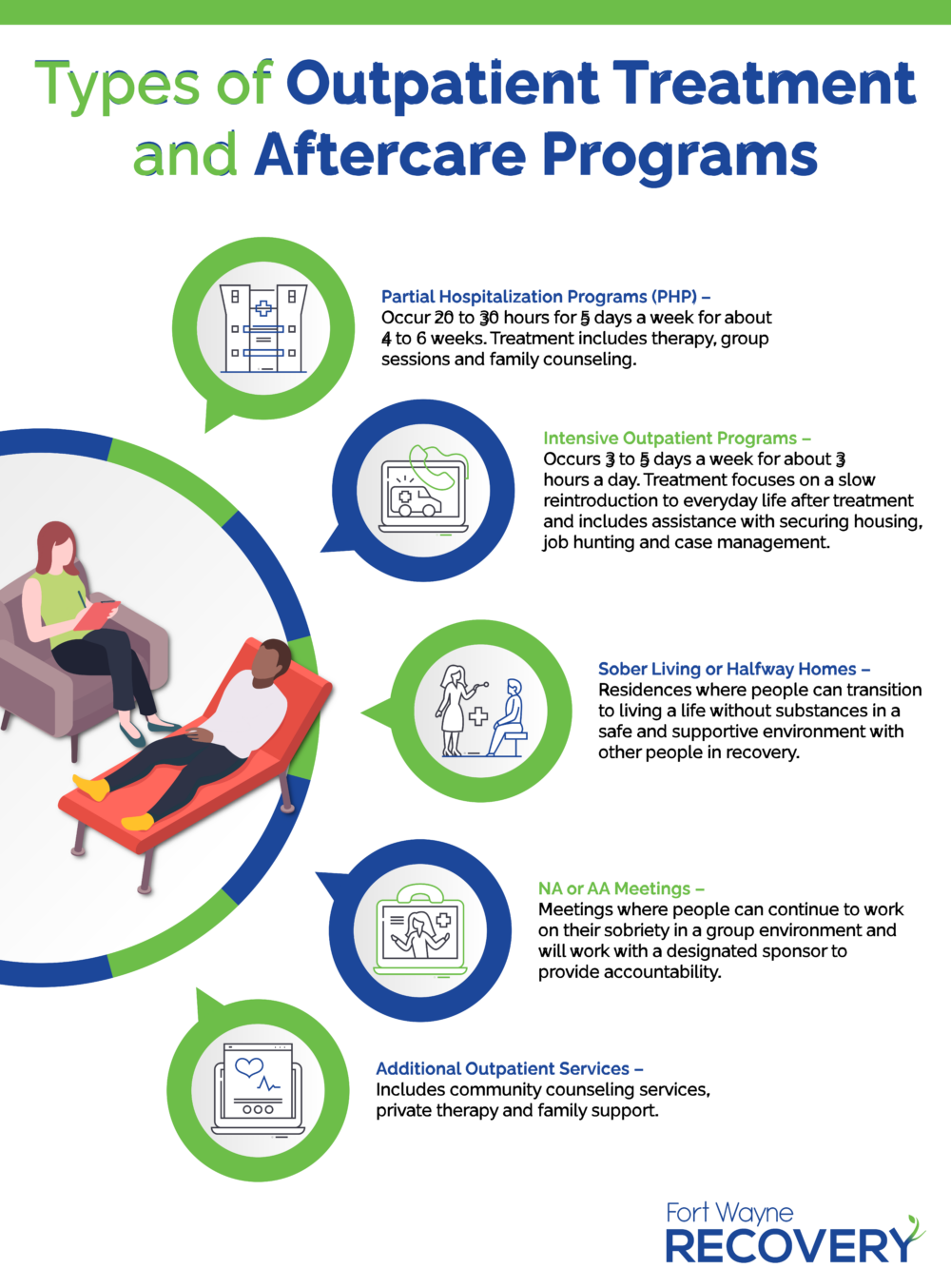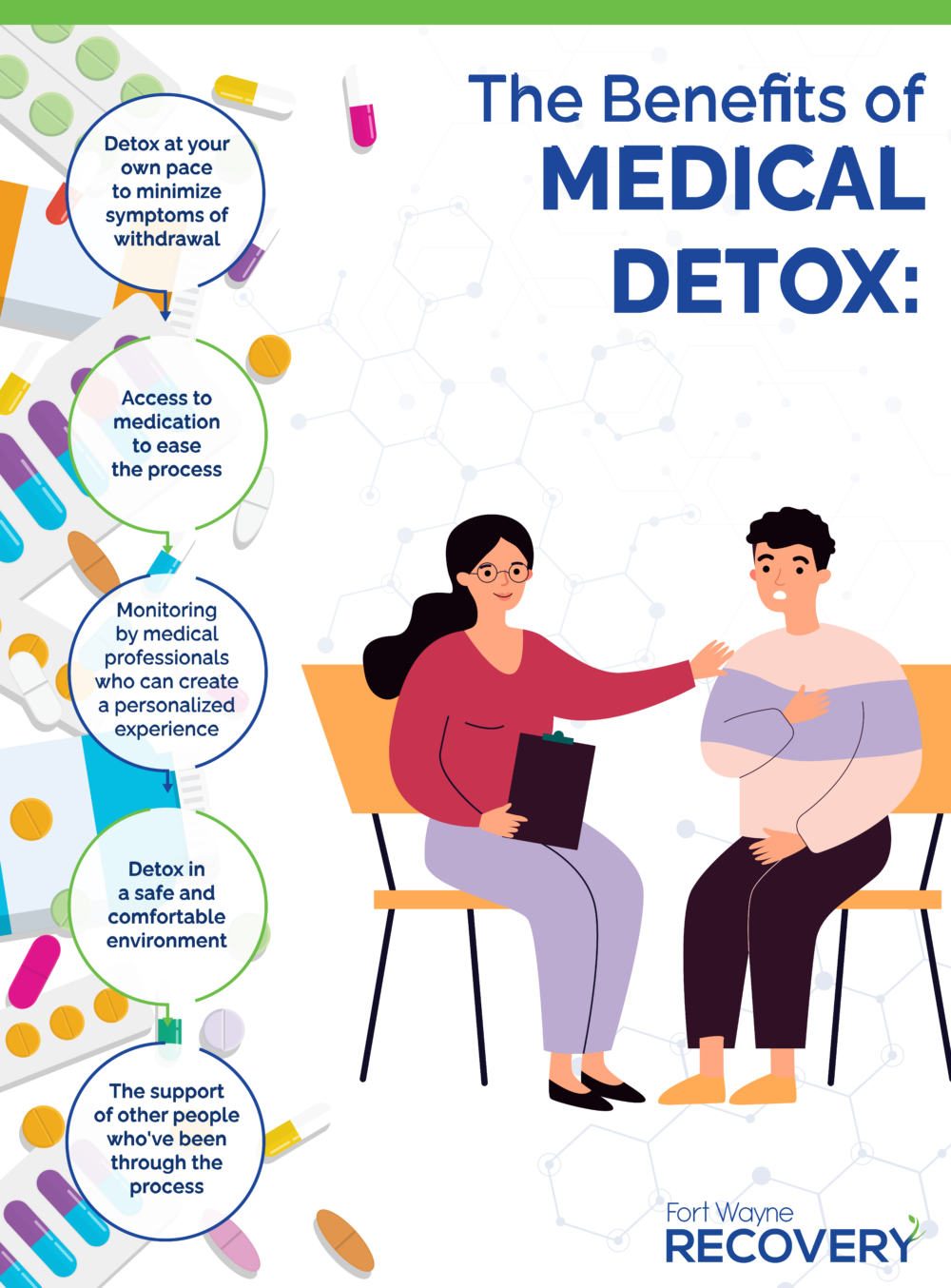Navigating Substance Use Treatment
Navigating Substance Use Treatment
When an individual or family member is ready to get help for a substance use disorder (SUD), it can be confusing to know where to get started. This might be one of the reasons why in a report from 2021 94% of people struggling with addiction reported not receiving any treatment.
Detox Facilities Provide Extra Support
Detoxing from drugs or alcohol is where most people start their recovery process. Medical detox facilities focus on making detox as comfortable and safe as possible. In a hospital setting, patients are given only 72 hours to complete the detox process even though the time to completely detox from alcohol or narcotics varies for each individual. This can cause feelings of frustration and anxiety especially if the person is still experiencing symptoms of withdrawal.
72hours
to complete the detox process
Trying to detox at home without medical support can lead to complications and an increased chance of relapse. Medical detox facilities provide patients with medications and therapies to make the process easier on them both physically and mentally. Withdrawal symptoms vary for each person and can sometimes be severe, so it’s helpful to have support from a team of specialists who can guide them through the process.
Side effects people can experience during withdrawal
Tommy Streeter, a community outreach coordinator for Allendale Treatment and Fort Wayne Recovery has been in recovery for 5 years and says that at first, he felt pretty confident that he could detox without any help but quickly found out that wasn’t the case. “I couldn’t detox on my own,” says Streeter. “I tried several times to detox at a family member’s home because I was convinced that I’d be able to detox on my own but as soon as I started to feel some of the physical and mental withdrawal symptoms that came with detoxing from heroin, all of those feelings went out the window and I started to think about getting high again. That’s why I also recommend going to a detox facility where you don’t have access to alcohol or drugs and are surrounded by people and resources that can help you get through the process safely and successfully.”
“That’s why I also recommend going to a detox facility where you don’t have access to alcohol or drugs and are surrounded by people and resources that can help you get through the process safely and successfully.”
“That’s why I also recommend going to a detox facility where you don’t have access to alcohol or drugs and are surrounded by people and resources that can help you get through the process safely and successfully.”
Residential Rehabilitation Centers Focus on Mental Health
Once someone finishes the detox process, it’s best if they then transition to a residential rehabilitation facility where they can continue through the recovery process. In 2017, 8.5 million American adults said they suffered from both a mental illness and substance use disorder. Rehabilitation facilities focus on addressing the underlying behavioral health issues that contributed to the addiction in a safe and supportive environment. Treatment usually includes personalized counseling, group therapy and learning coping skills to help the individual when they are ready to reenter society. They will be in an environment where they can focus on tackling issues such as depression, anxiety and other behavioral health issues through a dual-diagnosis approach. This will also help them to be more self-aware of their triggers and learn tools and techniques to help them when they feel the urge to use drugs or alcohol again.
Nate Moellering, a community outreach coordinator at Allendale Treatment and Fort Wayne Recovery has been sober for 6 years and knows how vulnerable people are after they complete detox. “When you finish detoxing from drugs or alcohol, that’s when you’re at the greatest risk for relapsing,” says Moellering. “When I finished detoxing, I thought that I felt “normal” again and I didn’t need any additional treatment but that’s why inpatient treatment facilities can be so beneficial. You’re surrounded by professionals who understand and have been through what you’re going through so they have the same mindset and can help guide you so you are in a better position to maintain long-term sobriety.”
“When you finish detoxing from drugs or alcohol, that’s when you’re at the greatest risk for relapsing.”
Nate Moellering, A Community Outreach Coordinator
Residential rehabilitation centers can also provide peace of mind to the family and friends of those struggling with a SUD by knowing their loved one is in a safe environment where they’re learning how to create structure, set boundaries and basic life skills so they will be stronger when they leave recovery. They can also provide family members with support and resources to help them better understand what their loved one is going through and how they can help them maintain their sobriety when they leave treatment.
Outpatient Treatment Comes in A Variety of Options
From support groups such as AA and NA to sober living homes, outpatient treatment options come in a variety of shapes and sizes. Depending on the individual’s needs and available time and resources, outpatient or aftercare programs can be tailored to support long-term sobriety. People can continue ongoing treatment and receive support for their mental health as their schedule allows so they can carry on with their jobs and maintain their family obligations. As they transition from an inpatient program, they’ll be able to build on the skills they learned during their detox and residential treatment while developing new ones.
Benefits of outpatient treatment
Katie Marie, a Clinical Director at Fort Wayne Recovery says that people are often in a bubble when they’re going through detox so transitioning back into their normal life can be challenging. “When a patient completes detox and in-patient treatment they will also have to start coming to terms with the fallout that their addiction has caused which could include things like legal issues, family problems and finding stable work again,” says Marie “When they start to reengage with day-to-day life it can be an overwhelming process and that’s why the support that outpatient treatment and aftercare programs provide can help prevent a relapse from occurring during this transition.”
“When they start to reengage with day-to-day life it can be an overwhelming process and that’s why the support that outpatient treatment and aftercare programs provide can help prevent a relapse from occurring during this transition.”
“When they start to reengage with day-to-day life it can be an overwhelming process and that’s why the support that outpatient treatment and aftercare programs provide can help prevent a relapse from occurring during this transition.”
Feeling isolated or without any support is a common reason for relapse and outpatient treatment or aftercare programs can provide the resources someone needs to stay sober. Most detox and rehabilitation facilities accept insurance and other treatment options can be paid for in a variety of methods but it’s best to contact the treatment facilities directly to see what payment options are available. Researching treatment options is the best way to figure out what’s going to work best for each individual struggling with a SUD and it’s best to get started right away so they can start recovery.



